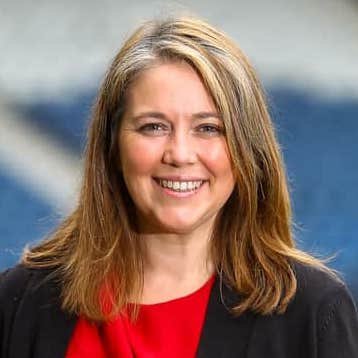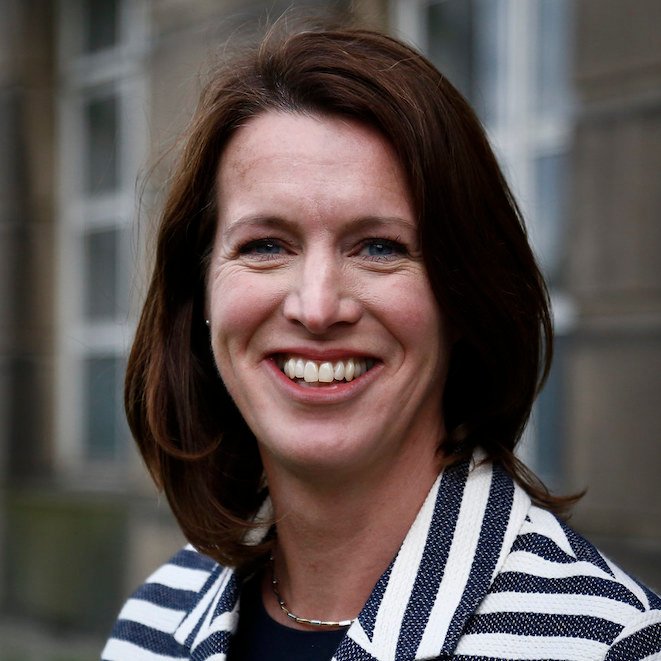THE Observatory for Sport in Scotland has added high-level experience from government and health to its board as it steps up work to understand and develop the benefits of community sport activity in Scottish society.
The Scottish Government’s former Cabinet Secretary for Health and Sport, Aileen Campbell (above, left), joined former colleague Geoff Aberdein, the ex-Chief of Staff to the First Minister, on the OSS board last year after stepping down from government in 2021 to spend more time with her family. She took up the role of Chief Executive of Scottish Women’s Football and now supports the OSS to engage and develop research around girls and women’s sport, in particular.
Now, further strengthening its health experience and knowledge, the OSS board has welcomed Scotland’s first female Chief Medical Officer Dr Catherine Calderwood (above, right). Catherine was the face of the government’s early pandemic response and, as a result of her high profile, resigned from that role after making an error in visiting a holiday home during a period of lockdown. She brings a wealth of knowledge from health to the OSS work to build research, evidence and wider understanding of the health and wellbeing benefits to all ages in Scotland’s communities from sport activity.
Born in Belfast, she graduated from Newnham College, Cambridge, and the University of Glasgow, to work in clinical medicine while training in obstetrics and gynaecology. Catherine spent 17 years in clinical roles of increasing seniority, before being appointed to government and NHS advisory roles in Scotland and England whilst maintaining clinical practice. She has 12 years’ experience in government advisory roles in maternity and women’s health, as a clinical adviser to Scottish Government, NHS Scotland and NHS England advising Westminster and Holyrood politicians, and the General Medical Council’s Responsible Officer for professional standards for Scotland’s 15,000 medical professionals.
Catherine launched and drove a number of initiatives to change approaches within the medical world, leading to a 23% reduction in the stillbirth rate in Scotland and transformed services for victims of sexual assault. She also managed the NHS Scotland’s £69m Research and Development budget.
Catherine took over from Sir Harry Burns as Chief Medical Officer in 2015 and was a highly respected CMO, founding new ‘Realistic Medicine’ principles now embedded in NHS Scotland and being developed globally. She spoke at the first OSS National Sport Summit in 2019, outlining the need for sport and health to work more closely together to help to improve Scotland’s health and wellbeing.
In 2020, she returned to medical practice and in January 2021 was appointed the Executive National Clinical Director of Centre for Sustainable Delivery of Health and Social Care at the Golden Jubilee University National Hospital. The Centre is a new £60m transformation organisation for NHS Scotland focusing on improvement through innovation in health and social care post the Covid pandemic, training healthcare staff for new roles, introducing new technologies and reducing waste and variation in the system.
Explaining why she had joined the OSS, Catherine explained: “I have been fascinated by the vision and work of the OSS since I first met its founder Charlie Raeburn and Chief Executive David Ferguson.
“They struck me as people and an organisation passionate about the health of Scotland’s population, with real insight and expertise to the research landscape and how we can use the often undervalued reach of community sport more effectively to address serious health and wellbeing, poverty and inequality, and sustainability issues across our society.
“We know that Scotland, like many countries, has real concerns around obesity, inactivity and mental health, affecting all ages and costing us billions in treatment each year. To change that, we need credible, independent and regular research and evidence; we need to connect people and organisations who all have a stake in our communities and our health and wellbeing; and while building on great work being done we must also look to challenge and change where it is not working.
“That’s the OSS mission and it is now getting a lot of traction and people on board from across many sectors, and I am looking forward to helping provide valuable support to government, the health and medical worlds, as we work together to improve Scotland’s health and wellbeing.”






Thought Piece from Charlie Raeburn for Reform Scotland